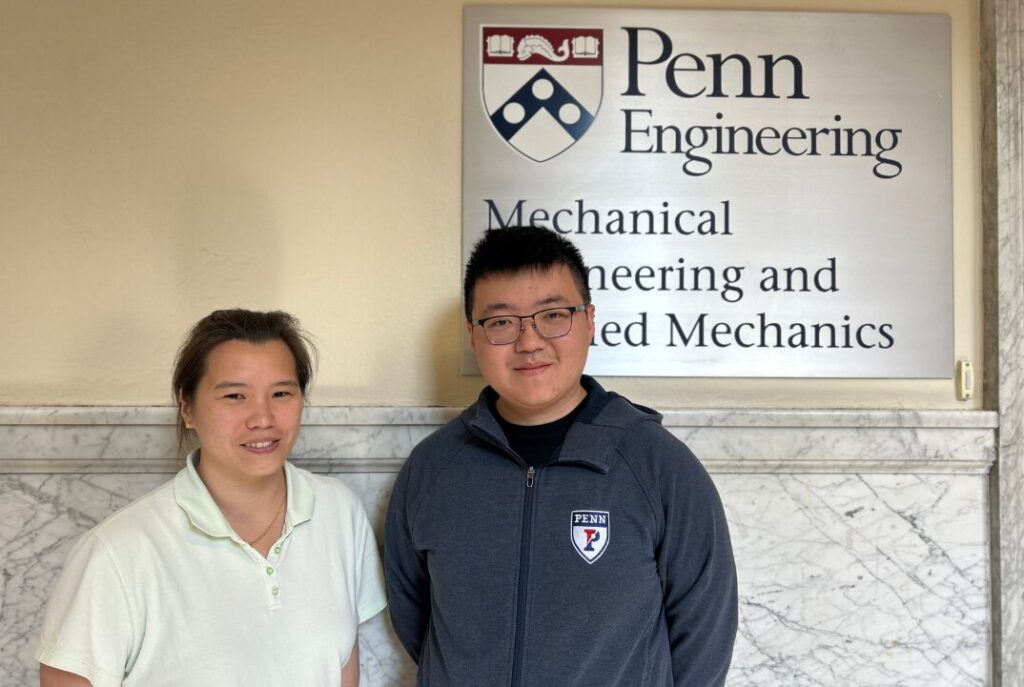
Master’s students have the option to write and defend a thesis at the end of their two-year program. Xueyang Qi, a 2024 graduate with a double major in Electrical and Systems Engineering (ESE) and Mechanical Engineering and Applied Mechanics (MEAM), opted to write a thesis under the advisory of Cynthia Sung, Associate Professor in MEAM.
Qi’s thesis, “Algorithmic Design of an Origami Squirrel-Inspired Paw for Quadrupedal Locomotion in Bar-like Terrains,” explores integrating a Squirrel-inspired Rapid Tenodesis (SQRT) foot with the Dynamic Origami Quadruped (DOQ) robot using origami fabrication techniques. The DOQ is an origami-based quadrupedal robot primarily used for hopping and walking on flat ground. By using origami fabrication techniques, Qi’s approach allows for rapid prototyping and improved compliance, resulting in a robot that can better navigate complex environments and maintain stability on bar-like surfaces.
During his time at MEAM, Qi had the opportunity to take a variety of robotics courses. “These courses have not only deepened my interest in robotics,” comments Qi. “But also offered a comprehensive overview of how various concepts are interconnected and implemented in real-world robotics applications.” One of these courses was MEAM 5100: Design of Mechatronic Systems, which is offered every Fall. In this class, the end project culminates in a “Grand Theft Autonomous Competition,” where students are tasked to build and operate a robot that could sense, navigate, and maneuver different game pieces to score points autonomously. “One of the most memorable moments was the final project in MEAM 5100,” recalls Qi. “My friend and I worked tirelessly through the night. Despite initially failing the test, we persisted, diagnosing and eventually resolving the issue. As we sat down for breakfast at the café after resolving the issue, we were filled with a sense of achievement.”
Qi encourages incoming students to actively engage with both coursework and research opportunities. As he explores what is next, he offers gratitude to his advisor, Cynthia Sung, and all the PhD students in the Sung Robotics Lab.
